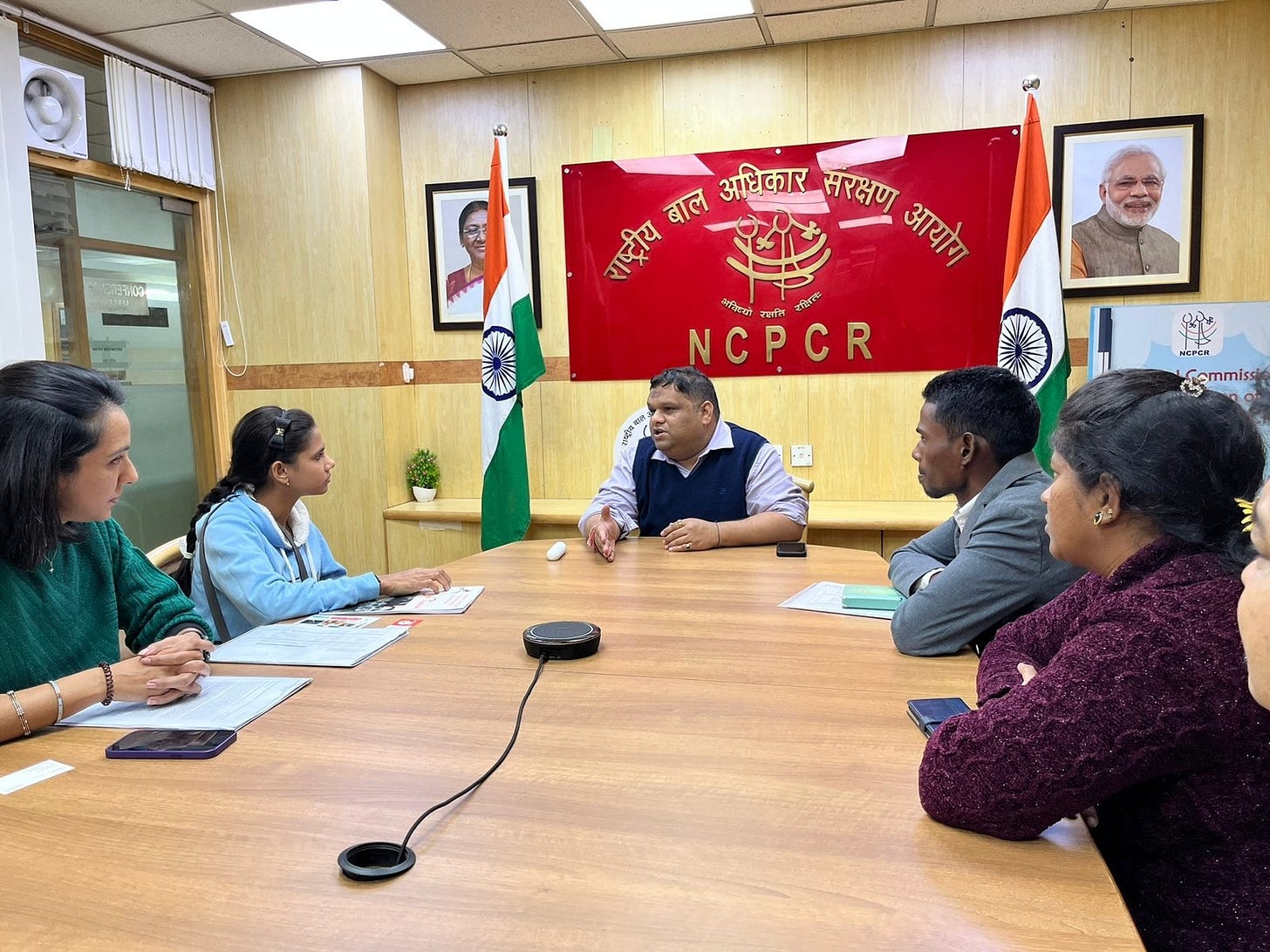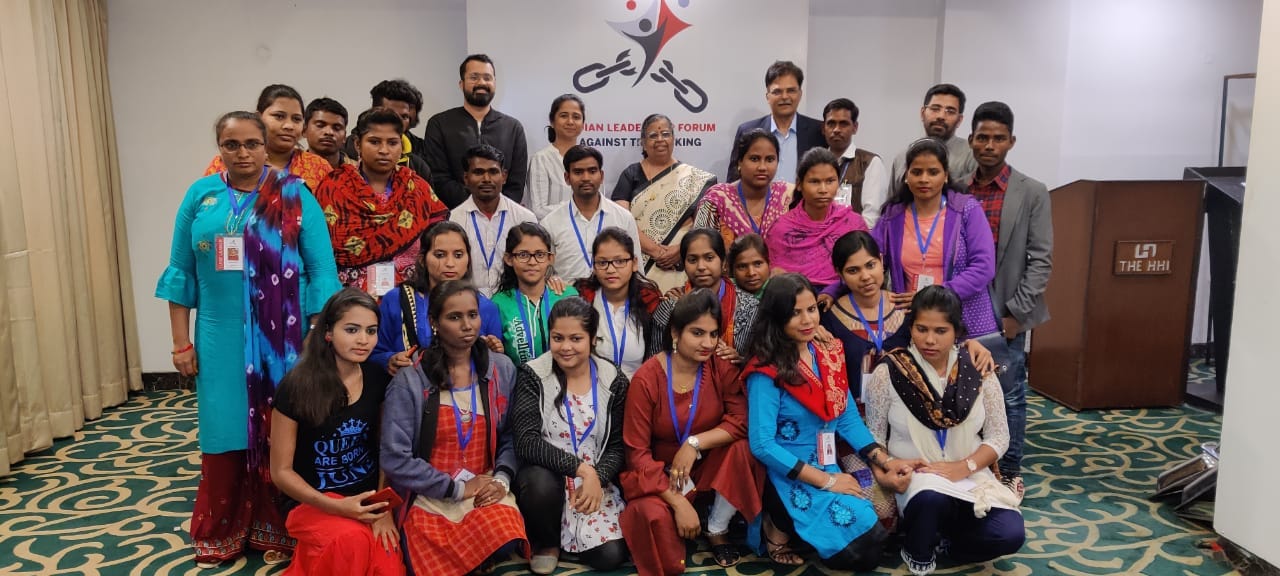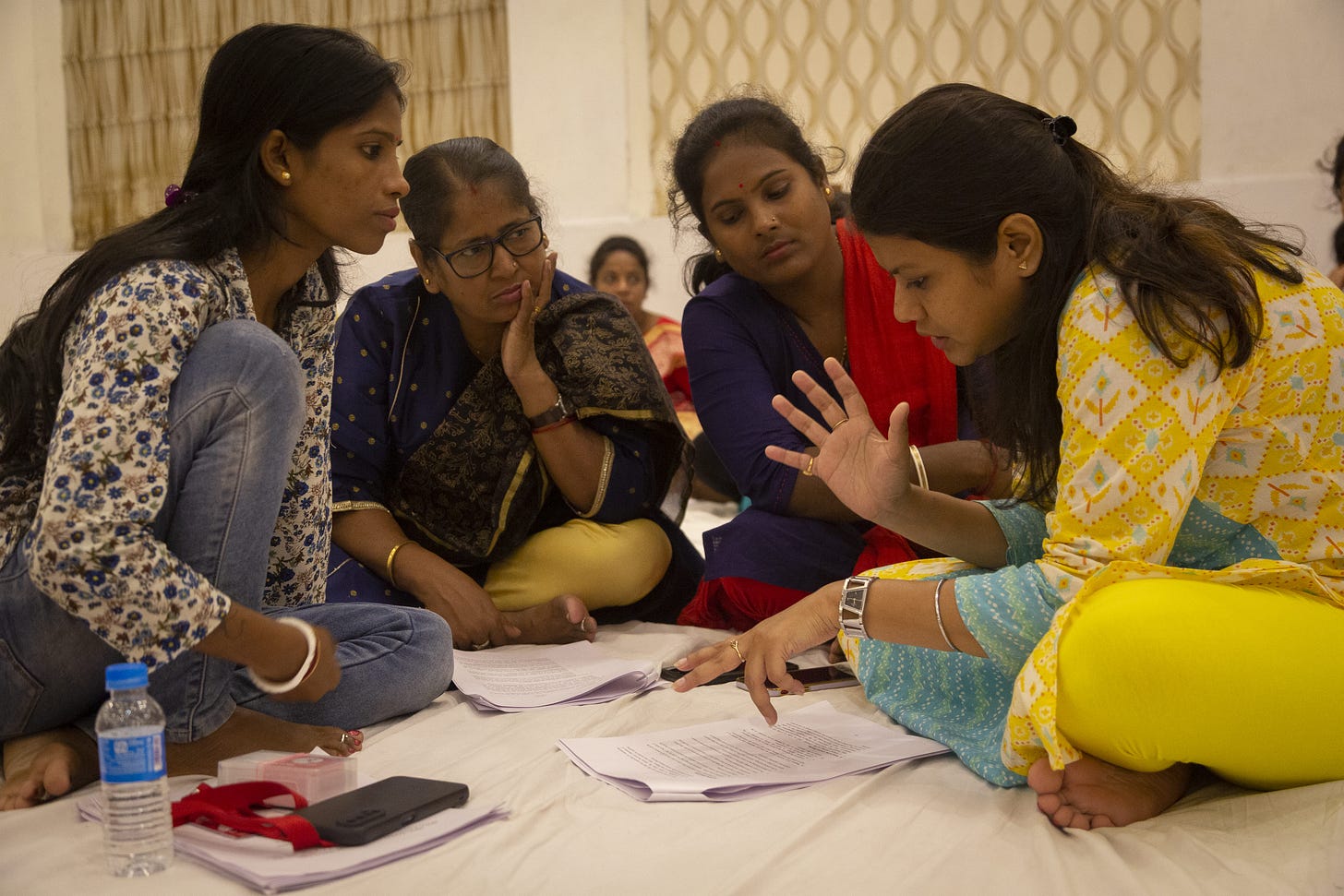Spotlight: Indian Leadership Forum Against Trafficking (ILFAT)
Survivors claiming their space, voice, and leadership in anti-trafficking efforts

Apeksha* was forcefully taken away from her home and family at the tender age of six. Like lakhs of other young men, women and children, she had been trafficked to live the rest of her life in cruel slavery.
She was seventeen when she escaped and even made her way back to her family. She knew exactly who her perpetrators were. Despite that, fearing stigma and lengthy court proceedings, her family discouraged her from fighting her case.
By the time she found her will to fight her case, it was too late. The witnesses and evidence were compromised. But the process had exposed her to countless stories, just like her own, of other survivors of trafficking.
She saw firsthand how the legal processes and policies designed to serve survivors justice had instead stacked all odds against them. There was no witness protection, and survivors’ families were threatened or worse if they testified. The victim compensation process was long and cumbersome. Young survivors who had been trafficked from one city to another found themselves having to return to their perpetrators’ city just for the court trials, away again from the safety of their homes.
Apeksha saw firsthand how the design of social processes to ‘rehabilitate’ survivors were deeply flawed. While Apeksha wanted to know how to fight her and her fellow survivors’ cases in court, the shelter homes made her sit in pottery classes. While she wanted to know how to carve her rightful place in society and not endure further stigma, the shelter homes taught her sewing.
She also saw firsthand how the media treated survivors as nothing more than victims, only amplifying the stigma and discrimination survivors were already facing in society.
Why was this happening?
Because the survivors of trafficking were kept on the margins of the solutions and narratives purported to be designed for them, it’s no surprise that the solutions and narratives didn’t work for them at all.
Apeksha decided to change that. She decided to claim her rightful place as a leader in shaping how India responds to trafficking. She was resolute. By securing justice for other trafficking survivors, she would find justice for herself.
Reclaiming control and agency
Apeksha embodies several other survivors nationwide, all dissatisfied with how things are. Many began to form survivor groups and soon learnt about each other.
This culminated in the formation of ILFAT in 2019. A nationwide collective of over four thousand five hundred survivors, spread across India, working decisively on tackling trafficking, standing on two pillars:
(1) policy and advocacy through the lens of survivors and;
(2) building awareness and mitigating stigma through media and popular narratives.
At the heart of their work, carrying the weight of it all, are the survivors who lead.
ILFAT is dedicated to making every survivor aspiring to lead - a leader for the sector.
New survivors in ILFAT are trained in skills such as public speaking, facilitation, and communication, and more so, the survivors may articulate their points of view and carry forward the work of the forum.
Comprising thirteen collectives spread across nine states today, ILFAT operates in a democratic and federated model, with elected survivors acting as leadership council members.
Policy and Advocacy
India’s first national-level protocol for survivors of trafficking
Survivors started to see the need to show a collective force and present a cohesive narrative of survivors’ lived experiences and demands.

ILFAT became this united front pushing advocacy for a unified law incorporating the survivor’s lens and best interests. This entailed brand new processes and discourse on the legal prosecution of the perpetrator and monetary compensation to the survivor, such as allowing for virtual hearings so that survivors may stay in the safety of their homes; witness protection for the survivors and their allies; rehabilitation funds so that nobody may turn survivors away, etc.
Through advocacy, ILFAT is laying the framework for a national-level standard of what ‘victim-centric’, community-based, choice-based rehabilitation and reintegration of survivors can look like.

Dictating their own stories and futures
Earlier, the media owned and shaped the narrative, “How did you get trafficked? What did they make you do?”
ILFAT is reclaiming the survivor’s story and dissipating stigma through media workshops & narratives in the country. In the words of a survivor, “When asked about that same old story [of how we were trafficked], we keep the story short and talk about our [advocacy] demands instead. That’s what they’ll have to focus on then.”
Now, the media asks them, “What are your goals with your work? What do you hope to achieve?”
ILFAT’s members are not only equipping newer generations of survivors with the ability to fight their own battles. They’re also giving them essential and priceless information to reform the system to work better for them.
Note:
*Names have been changed to protect the privacy of individuals.
Edited by Keerthana Medarametla and Supriya Sankaran




